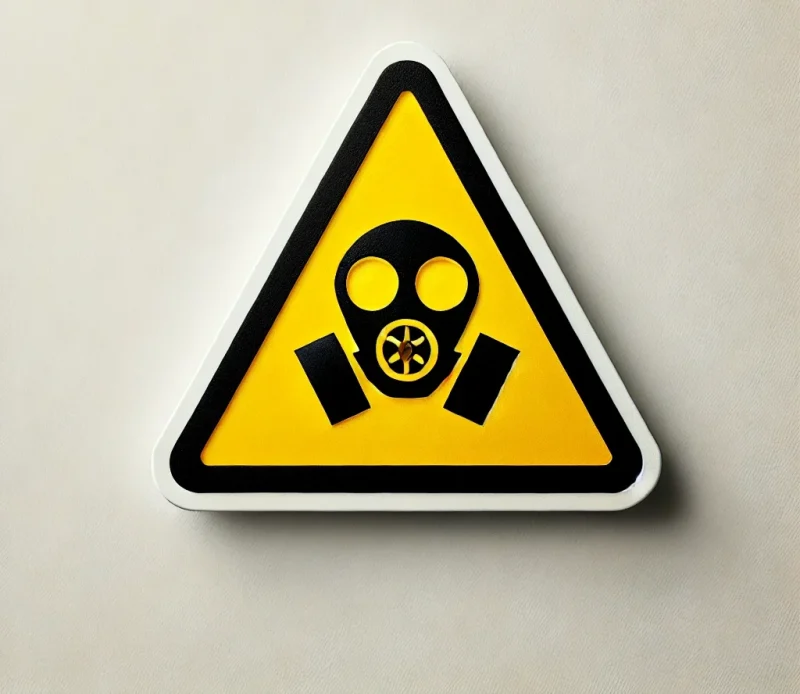Carbon Monoxide: Crucial Advice for Landlords
Published on November 30, 2024 by Sarah Mac

As a landlord, keeping your tenants safe is a top priority, and one danger you simply cannot ignore is carbon monoxide (CO). Known as the “silent killer,” this colourless, odourless gas claims around 40 lives in the UK each year and hospitalises hundreds more.
Even if your rental property seems perfectly fine, unsafe appliances or lapses in maintenance could put your tenants at risk.
Here we explore what you need to know to keep your properties and tenants safe from the dangers of carbon monoxide, and stay on the right side of the law.
What is carbon monoxide?
Carbon monoxide forms when fuels like gas, wood, coal, or oil do not burn completely. It can come from a variety of household appliances, including:
- Gas boilers
- Gas or paraffin heaters
- Wood or coal fires
- Portable generators
Even less obvious sources, like using a barbecue or a camping stove indoors or running a car engine in a garage, can cause dangerous CO levels.
The problem with CO is that it is invisible and odourless, meaning you will not know it is there without proper safety measures. Symptoms of poisoning can include headaches, dizziness, nausea, and confusion—and in severe cases, it can lead to unconsciousness or even death.
What does the law say?
As a landlord, you are legally required to take action to prevent carbon monoxide poisoning. The Smoke and Carbon Monoxide Alarm (Amendment) Regulations 2022 make it mandatory to:
- Fit a smoke alarm on every storey of a rental property that has a room used as living accommodation.
- Install a carbon monoxide detector in any room with a fixed combustion appliance (excluding gas cookers). This applies to items like gas boilers, fireplaces, and wood stoves.
- Repair or replace faulty alarms promptly if a tenant reports a problem.
Failure to comply could result in a fine of up to £5,000, enforced by your local council.
Gas safety checks
For appliances like boilers and gas fires, an annual gas safety check by a Gas Safe Registered engineer is a must. This is not just a legal requirement – it is essential for your tenants’ safety.
Once the check is complete, you should receive a Gas Safety Certificate (often called a CP12) to prove the work has been done. Make sure you keep this on file and provide a copy to your tenants.
Carbon monoxide – spotting the warning signs
While carbon monoxide alarms are vital, it helps to know the physical signs of carbon monoxide problems, too. Look out for:
- Yellow or orange flames on a gas fire (instead of the usual blue)
- Soot or stains around appliances
- Pilot lights that frequently go out
If your tenant notices these signs, or if an alarm goes off, they should be advised to act immediately.
The importance of carbon monoxide alarms
A carbon monoxide detector is your first line of defence. These devices are inexpensive, easy to install, and could save lives. Place them in rooms with fuel-burning appliances, ideally at head height, and test them regularly.
Encourage your tenants to report any issues with alarms, and replace units as soon as they stop working. Alarms typically have a lifespan of around five to seven years, so keep track of when they were installed.
Carbon monoxide awareness
Awareness of the dangers of carbon monoxide is the key to keeping the risks at bay. Here are some tips to share with your tenants:
- Never use barbecues, camping stoves, or portable heaters indoors
- Keep vents and flues clear of blockages
- Avoid running vehicles or machinery in enclosed spaces like garages
It is also worth reminding tenants about the symptoms of carbon monoxide poisoning. These include tension headaches, dizziness, and nausea.
A safer rental property
Staying informed and proactive about carbon monoxide safety is not just about ticking legal boxes. It is about providing peace of mind for you and your tenants. As part of your property management routine, make sure CO alarms and safety checks are given top priority.
If you are looking for more guidance on managing your rental properties, SRP Inventories is here to help. From check-in and check-out reports to mid-term inspections, we ensure your properties meet all legal requirements and are safe for tenants to call home.

